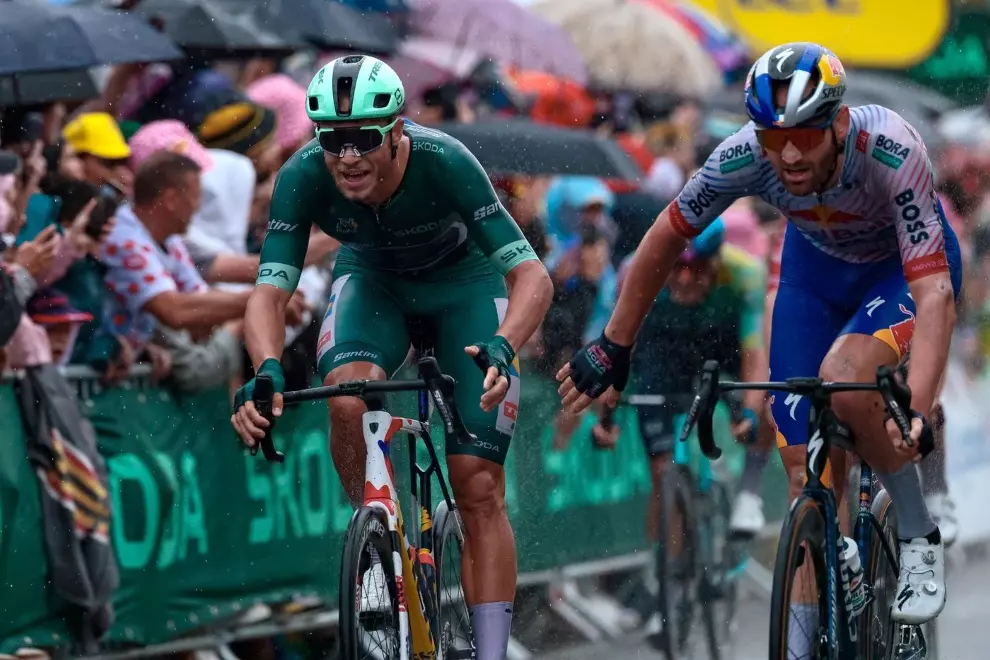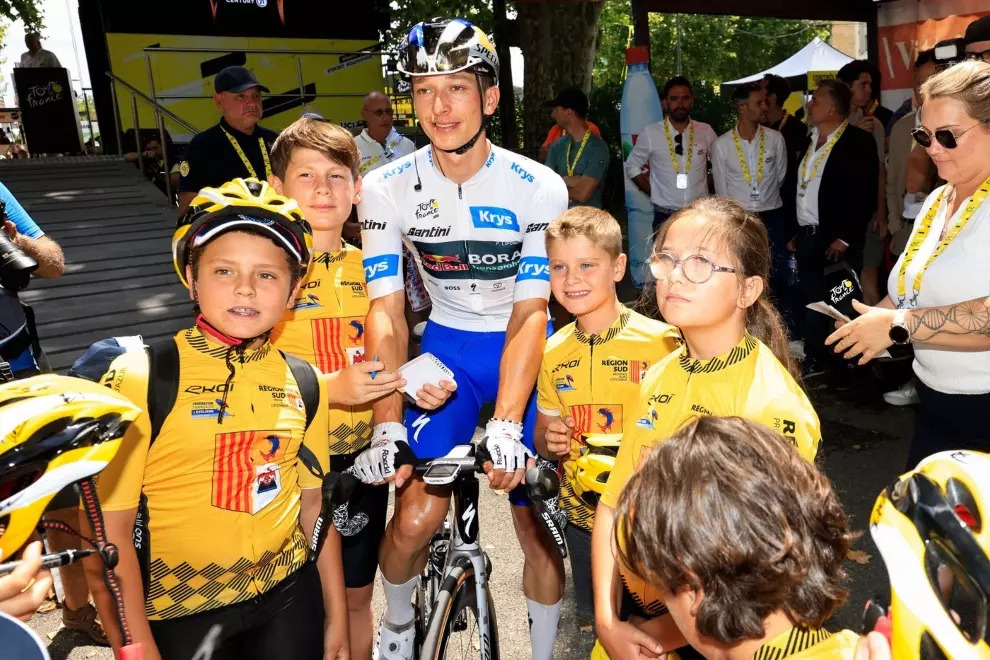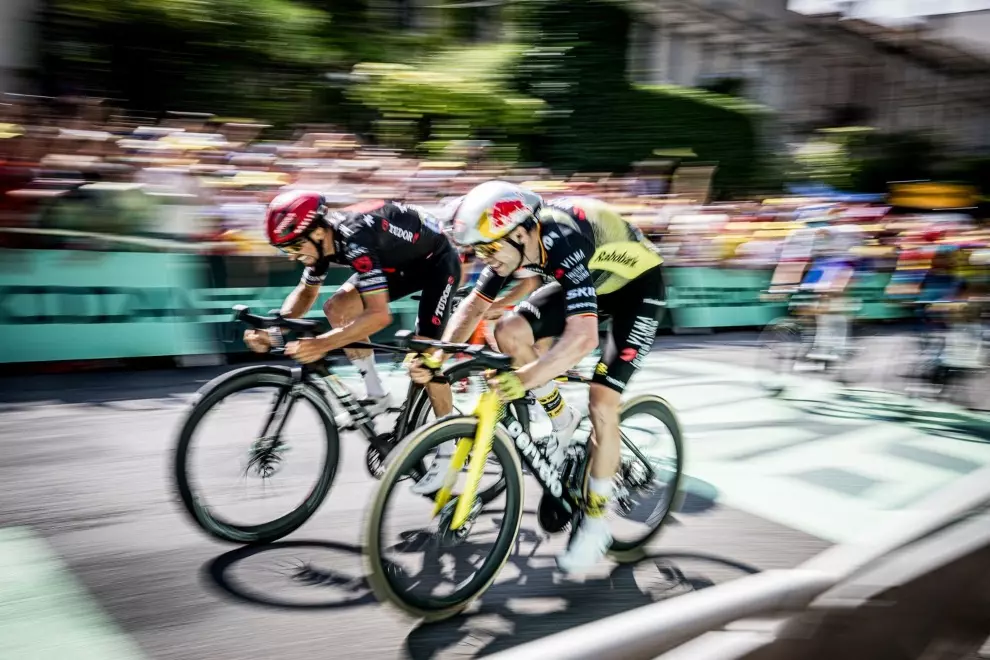Merckx was at the race with his son and even placed a wager on the outcome. “I bet 1,000 euros with my son that Laporte will win,” he told Sporza. But he said that van Aert should not have let the Frenchman win. “It’s his choice to let a teammate win, but I wouldn’t have done it.”
He conceded that the decision might have been made by the team. “Of course, I don’t know what’s going on within the team,’ the Cannibal said. “[But] Wout van Aert was by far the best. He could write history by winning Harelbeke [E3 Saxo Bank Classic], Wevelgem and the Tour of Flanders.”
In the same article, Boonen backed Merckx’s opinion, and took it farther. “I have also helped teammates to the win, but never in such a situation,” he said. “You help teammates to let them fight for the win. This again looked good for the team’s marketing, but I don’t know if I would have done it.”
He added that van Aert should have thought only about winning. “Wout is going to regret it,” Boonen predicted. “At this point in his career, Van Aert has to win races. It doesn’t matter how… You don’t have to be the best, it’s all about winning.”
For Laporte, the victory was of immense importance. “I want to thank Wout for everything,” he said after the race. “I’ve never won a Classic before, and now I’m so proud. I think of my family and my little boy – it has taken so much sacrifice to get to this point.”
As for van Aert, last year’s Tour de France Škoda green jersey winner had a sharp reply to his critics. “I just don’t have to do anything,” he said, with the emphasis on the have, strongly implying that the unwritten rules of the sport, which his critics followed when they raced, no longer apply.

It is important to note that Merckx, Boonen and van Aert are all Belgian, and so is the Gent-Wevelgem, and that Laporte is French. So a strong motive for the pile-on was probably a kind of nationalism, the conceit that an important home race must be won by a rider from the home country. But I think that younger cyclists, like van Aert and Laporte, learned to ride on teams that were multinational, and Jumbo-Visma, a Dutch team, is as diverse as they come. If you go on the Team page of their website, you’ll see that there is no mention of the riders’ nationalities. That suggests that the team, not the nation, defines their identities when they are on a bike.
This is a relatively new development, but one that is partly driven by an old and familiar incentive: money. Boonen was surely right when he said that van Aert’s gesture was good for the team’s marketing, and therefore its sponsors. But that is today’s reality. Cycling has grown into a global sport, which attracts ambitious sponsors with big pockets. According to several publications, van Aert currently earns €2.2 million a year. Whether that is accurate or not, it is certainly in the ballpark, and it is a salary previous generations of riders could only have dreamed of. And that photo of the Belgian and his French teammate at the Wewelgem finish line must have been music to the ears of Jumbo and Visma, who pay van Aert’s salary.
But I don’t believe that the money was the primary, or only, reason for van Aert’s generosity. I think friendship and gratitude – for Laporte is one of the most important members of the team and has helped him win numerous races – played a big part. Here is what van Aert said about the controversial finish. “We rode full throttle until about eight or ten kilometers from the finish,” he told journalistsafter the race. “At that time we were pretty sure that the victory was in our hand. I won on Friday [in the E3 Saxo Bank Classic] and I have my sights set on the races to come. Christophe also had a difficult start to the season due to illness. He is such a team player that it was an easy decision.”
The good news is that not everyone criticized him for that “easy decision”. For example, the former professional rider Cyrille Guimard praised van Aert. He told Cyclism’Actu, “I really don’t understand the position of riders like Eddy Merckx or Tom Boonen. For me, on a human level, it was extraordinary. Lacking humanism is not a [good] quality, especially when you already have a winning track record. I say bravo to van Aert and especially bravo to Christophe, who had a great race.”
Of course, Guimard is French, not Belgian, and he has been sports director of numerous teams, so he has a wider perspective. The value of humanism he cited as a motive has largely been forgotten, and has been little considered, in the cutthroat world of sports. Van Aert’s gesture at the Gent-Welegem was certainly an act of humanism – one teammate to another, one friend to another, one human being to another – that should be applauded and imitated, not condemned.
I think that this generation of male riders is different from their predecessors not only because of their salaries or their nonchalant attitudes towards nationalist obligations, but also because they don’t believe in the famous adage first formulated by the late American football coach Vince Lombardi: “Winning isn’t everything; it’s the only thing.”




